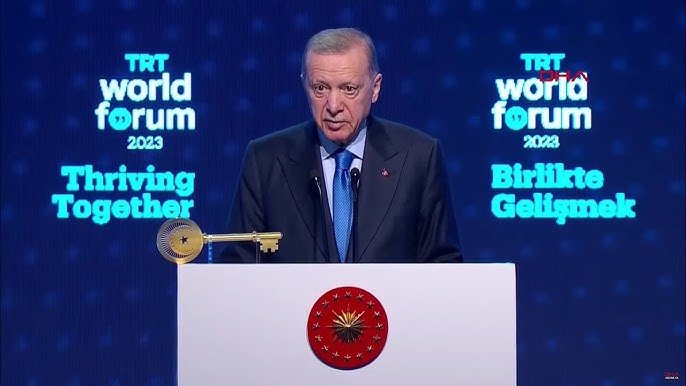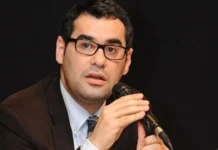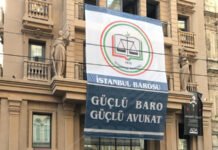President Recep Tayyip Erdoğan has accused global digital platforms of encouraging what he described as “deviant trends,” claiming that Turkey’s traditional family structure is “under serious attack,” Turkish Minute reported.
Speaking at the TRT World Forum 2025 in İstanbul on Friday, Erdoğan stated that online media and streaming services were undermining social values and distorting the concept of freedom.
“The family institution is under serious attack. Deviant trends and relationships that ignore human nature are being encouraged through digital platforms,” Erdoğan said.
He argued that “all forms of immorality are being legitimized” under the guise of freedom and that people no longer hesitate to expose their privacy “just to gain a few likes.”
The president’s remarks echoed his government’s growing focus on regulating online content and social media, which officials say is necessary to protect public morals and national security. Critics, however, argue that Ankara’s efforts amount to digital censorship and are part of a broader strategy to suppress dissent and tighten control over information.
Erdoğan’s speech came just days after his far-right political ally, the Nationalist Movement Party (MHP), submitted a bill to parliament seeking to sharply raise taxes on foreign digital platforms.
The proposal, introduced on October 27, would increase Turkey’s digital services tax on foreign companies from 7.5 percent to 12.5 percent, while maintaining the current rate for domestic firms. MHP Deputy Chairman İsmail Özdemir, who announced the initiative, said the goal was to strengthen national digital media and curb the drain of national capital by international companies such as Netflix, YouTube and Spotify.
Ankara has introduced several measures in recent years to strengthen state-aligned and domestic media, including requirements for social media companies to maintain local offices and content quotas for streaming services.
Turkey already has one of the world’s most restrictive online environments, where authorities routinely block access to social media accounts and digital news outlets under broad “disinformation” and national security laws.
According to Interior Minister Ali Yerlikaya, authorities blocked more than 27,000 social media accounts in the first four months of 2025 as part of what officials describe as efforts to combat “disinformation.”
Rights groups, however, say the sweeping restrictions mainly target journalists, opposition figures and independent outlets critical of the government.
International watchdogs have ranked Turkey among the world’s most repressive environments for online expression, citing vague laws that enable arbitrary content bans and heavy pressure on foreign platforms to comply with government takedown orders.















